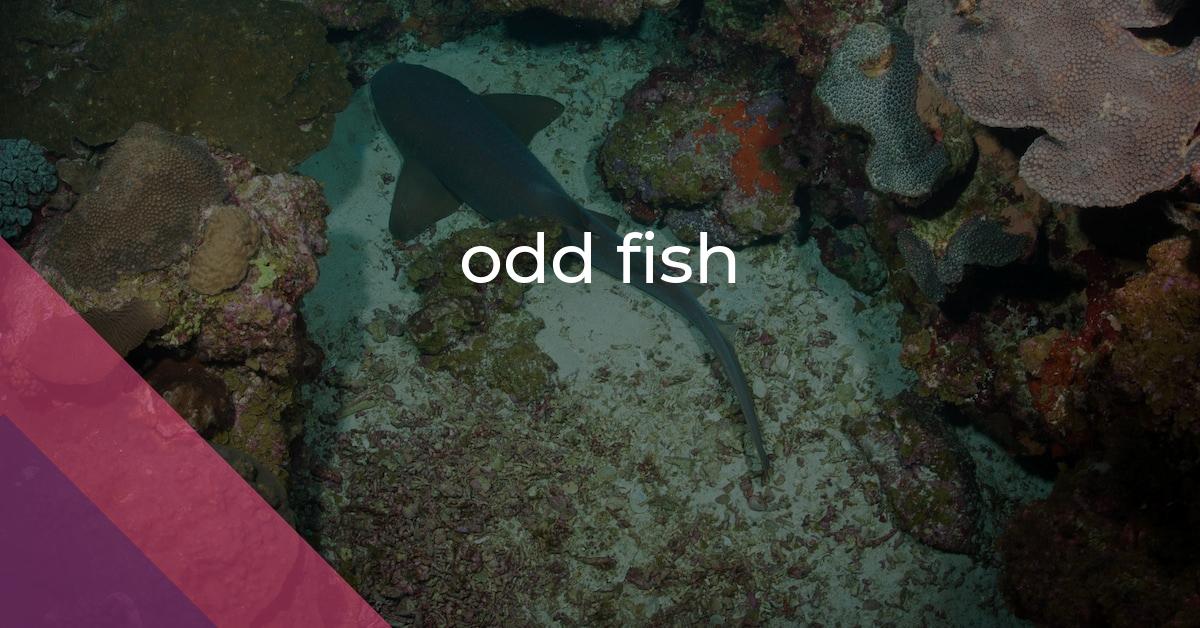odd fish: Idiom Meaning and Origin
What does ‘odd fish’ mean?
The idiom *odd fish* refers to a person who is unusual or eccentric in their behavior or appearance.

Idiom Explorer
An idiom used to emphasize the extreme or exceptional quality of someone or something.
The idiom "queer fish" is used to describe someone who is strange, eccentric, or unconventional.
The idiom "out of one's box" means to be acting in an unconventional or unexpected way, deviating from one's usual behavior or habits.
The idiom "out of character" means behaving in a way that is not typical or usual for a person, often surprising others due to the deviation from their usual behavior.
The idiom "other than" is used to indicate an exception or exclusion, suggesting that something or someone is different from or does not fall into a particular category or condition.
The idiom "other head" means having a different opinion or perspective, often resulting in conflict or disagreement.
The idiom "other fish in the sea" means that there are plenty of alternatives or options available when one opportunity or relationship fails or ends, suggesting the need to move on and explore other possibilities.
The idiom *onesey-twosey* means to do something in small, irregular or inconsistent quantities, rather than all at once or consistently. It implies a lack of organization or commitment.
The idiom "one of those things" refers to a situation or event that is out of one's control, often unexpected or difficult to explain or understand.
The idiom "one-off" refers to something that happens or is done only once, and is not repeated or meant to be continuous.
Decoding Eccentricity
The idiom "odd duck" is another colorful expression in the English language. It refers to a person who is considered strange or unconventional. Like "odd fish," this phrase implies that the individual in question stands out from others in some way. However, the term "odd duck" specifically emphasizes the individual's uniqueness or peculiarity.
When someone is called an "odd duck," it means that they have eccentric or idiosyncratic qualities that set them apart from the norm. They may have unusual habits, unconventional interests, or a distinct way of thinking. In a similar vein to "odd fish," the term "odd duck" is often used informally to describe individuals in a lighthearted or affectionate manner.
Both "odd fish" and "odd duck" can be used interchangeably to convey the same idea of someone being peculiar or unconventional. These idioms add color and imagery to our language, allowing us to describe individuals who defy societal expectations or norms in a memorable and playful way.
The third idiom related to "odd fish" is "queer fish." This phrase may sound unfamiliar to some, but it has a similar meaning to the previous two idioms. "Queer fish" refers to a person who is considered odd, strange, or eccentric. It conveys the same sense of peculiarity and uniqueness as "odd fish" and "odd duck."
The term "queer fish" is less commonly used than "odd fish" or "odd duck," but it can still be encountered in certain contexts, particularly in British English. Like the other two idioms, it emphasizes the unconventional or idiosyncratic qualities of an individual, highlighting their divergence from societal norms or expectations.
It's interesting to note the different imagery and associations evoked by each of these idioms. While "odd fish" brings to mind the world of fishing and the image of a fish standing out from the rest, "odd duck" introduces the notion of a duck that's different from its peers. In contrast, "queer fish" adds the element of queerness or peculiarity to the imagery, making it an even stronger expression of unique or eccentric individuals.
Idioms such as "odd fish," "odd duck," and "queer fish" serve as colorful expressions in the English language to describe people who are considered unconventional, peculiar, or eccentric. These idioms bring vivid imagery and a touch of playfulness to our everyday conversations, allowing us to capture the essence of these individuals in a memorable and engaging way.
Example usage
Examples of how the idiom *odd fish* can be used in a sentence:
- He's always been an odd fish, wearing mismatched socks and talking to himself.
- She's definitely an odd fish in our office, always bringing weird and exotic food for lunch.
- Everyone thought he was an odd fish for collecting antique typewriters, but it turned out to be a valuable investment.
More "Idiom" idioms



